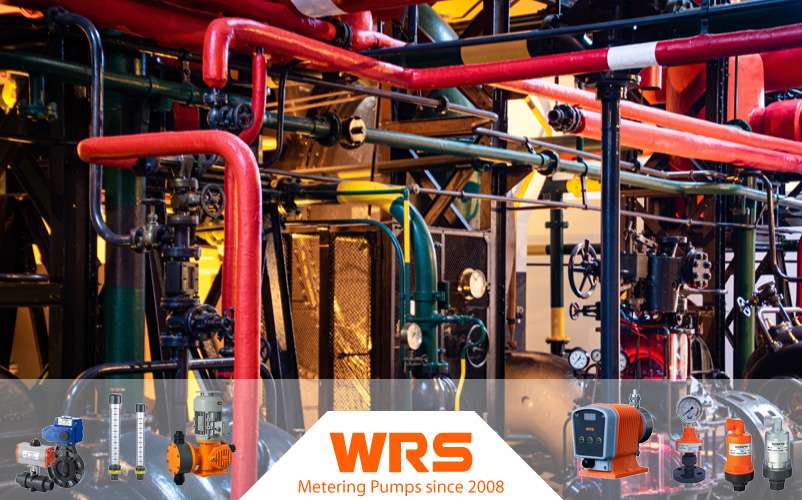
Peristaltic pumps are a type of metering and dosing pumps that have their own unique advantages when compared with the other kinds that are available on the metering pump market. Peristaltic pumps are well suited for processes where contamination is a serious issue since the mechanism of this type of pump keeps the fluid/liquid in the hose forbidding backflow or any other malfunction; they also offer a high level of pumping accuracy.
The Operation of a Peristaltic Pump

The mechanism of a peristaltic pump is quite simple. It compresses and relaxes to release the exact amount of fluid / chemical dose according to what the original measurement was setup to. It brings up the contents to the hose and with the help of other components rigged for accuracy, it is able to consistently dose the fluids / chemicals as per application.
What Peristaltic Pumps are Best Suited For
There are quite a few industries such as water treatment plants and processes for which peristaltic pumps are better suited than other varieties such as air operated diaphragm pumps.
- Leveling the pH is a process that is carried out by metering pumps of all kinds but is done best with peristaltic pumps. The PH of the water gets disrupted once it’s been treated regardless of whether it was treated for wastewater, or for swimming pools or for mineral water production. Lime or sodium hydroxide is typically used to adjust the pH to the required or balanced level. The pH level and its fluctuation are linked to the control options and dosing speed of the metering pump.
- Removing the phosphates in water is a common treatment process done with the help of peristaltic pumps. Phosphates are compounds that are harmful to wildlife and fish as a result many countries (e.g. Australia, South Africa, India and others) have laws that forbid runoff from industrial water that contains phosphates. For those reasons they need to be removed and treated before the water can be added to streams or rivers or recycled for use in any way. Iron(III) chloride (also known as Ferric chloride) is commonly used for sewage wastewater treatment and drinking water production as a coagulant and flocculant. Because Ferric chloride is the usual choice to treat water filled with phosphates, although Ferric Sulphate may also be added. It is essential for the dosing rate to be calculated to the dot as an overdose means there will be a high iron content in the water which is not desirable.
- Lime addition is done during water treatment for different reasons such as dissolving heavy metal content and killing bacteria and viruses as well as harmful sediments and particles that often settle in water. Chlorinated water also becomes better if lime is circulated as it becomes less harsh for the skin and becomes what is known as ‘soft water’ as opposed to ‘hard water’. The peristaltic pump is good at keeping the lime semi-solid or fluid-like so it can be pumped easily. The point is for all the water in the treatment containment to be targeted including the sediments that settle to the bottom of the container/tank. Keeping the lime at a certain state helps in blockages in the pipes as well that can overtime halt the process or make it less efficient.
Motor Driven Chemical Dosing Pump
The most common driving method ‘motor’ by all chemical dosing pumps. WRS motor driven metering pumps are designed to be operated with the minimum input power, yet able to produce high flowrate and high pressure performance. These pumps help our clients to get the most value out of their chemical dosing systems.
Benefits Overview
Motor-driven pumps are more robust, reliable and able to run on their own without supervision. Dosing pumps with mechanically actuated diaphragms can be used almost universally in low pressure ranges. These type of pumps also offer a very wide performance range and accuracy:
- Chemicals up to over 1,800 l/h
- Disinfectants in potable water treatment
- Disinfectants in cooling circuits
- Flocculants in waste water treatment
- Additives in the paper industry
- Additives in plastic manufacturing
- And other applications
Talk to Industry Experts Learn More About WRS Metering Pumps
For all your questions related to metering pumps and chemical dosing, trust the experience of WRS. Because you’ll get proven solutions, long lasting affordable pumps. Regardless of where you are located on planet earth (be it in South Africa, India, Australia, Europe, Asia or elsewhere), we can professionally answer all your queries to find the right solution for you and connect you with one of our valued WRS metering pump distributor.
